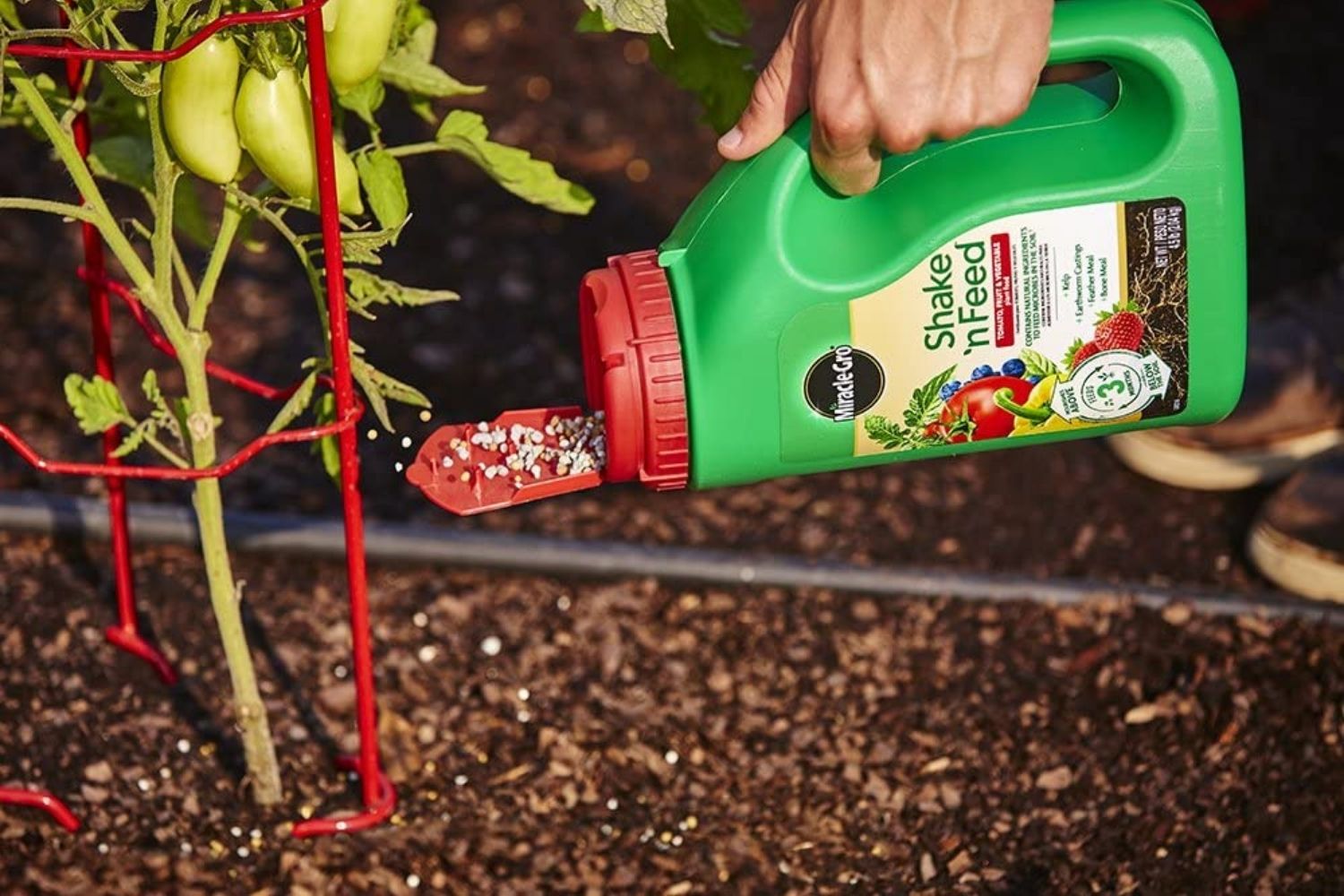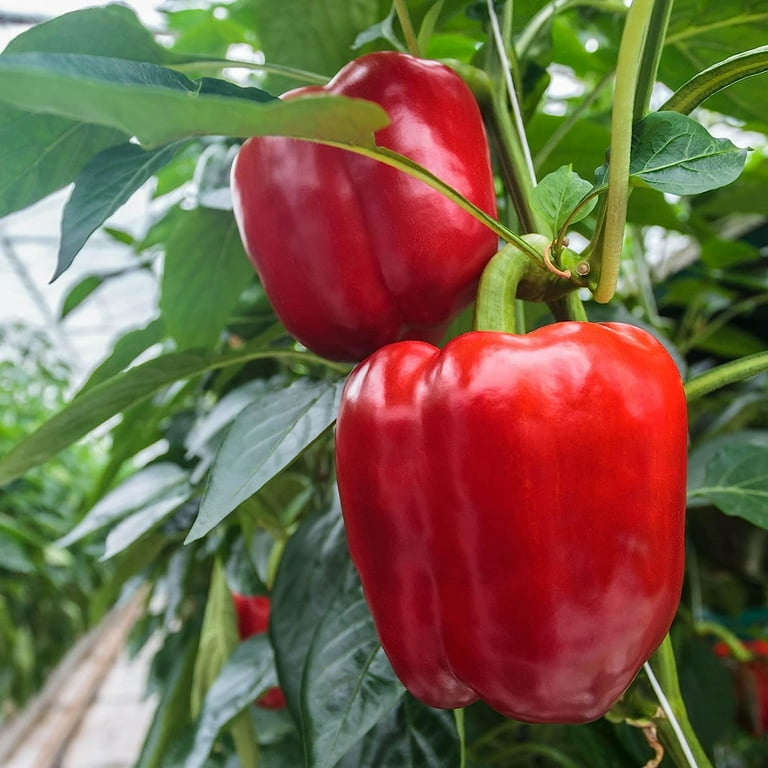Best Fertilizers for Peppers: Boost Growth and Taste with Our Top Picks
Best Fertilizers for Peppers: Boost Growth and Taste with Our Top Picks
Blog Article
Organic Vs. Synthetic Fertilizers: Which Is Best for Supporting Healthy Pepper Plants?
In the realm of supporting healthy and balanced pepper plants, the choice in between synthetic and natural plant foods stands as a critical decision with significant ramifications. While both options purpose to provide essential nutrients to support plant growth, the subtleties of their effect on the dirt, plant wellness, and the atmosphere spark a dispute that echoes throughout the horticulture neighborhood. Understanding the unique benefits and potential risks of each plant food kind is vital for pepper farmers seeking to optimize their returns while preserving an eco-conscious and sustainable method.
Advantages of Organic Fertilizers
Organic fertilizers provide an environmentally-friendly and lasting technique to nourishing pepper plants, providing crucial nutrients without making use of synthetic chemicals. These natural fertilizers are originated from organic resources such as garden compost, manure, bone meal, and seaweed, promoting soil health and wellness and biodiversity. Unlike synthetic fertilizers, natural alternatives release nutrients slowly, guaranteeing a balanced and stable supply for pepper plants to grow.
One significant benefit of natural plant foods is their ability to boost dirt framework and water retention. By enhancing dirt health and wellness, organic plant foods promote valuable microbial activity, which helps in nutrient uptake by pepper plants. Furthermore, organic plant foods minimize the threat of chemical run-off, shielding water sources from pollution and securing the atmosphere.
In addition, natural fertilizers add to lasting soil fertility by promoting the development of useful soil microorganisms. These organisms help damage down raw material, releasing nutrients in a type that is conveniently accessible to pepper plants. best fertilizers for peppers. By cultivating a healthy and balanced soil community, natural fertilizers support sustainable pepper cultivation practices that benefit both plants and the environment
Disadvantages of Artificial Fertilizers
Artificial fertilizers, unlike their natural equivalents, position numerous disadvantages when used to nourish pepper plants, impacting both plant health and ecological sustainability. One major downside of synthetic plant foods is their tendency to leach nutrients from the dirt quickly. This fast leaching can result in vitamins and mineral imbalances in the dirt, creating plants to suffer from deficiencies or toxicities. Furthermore, synthetic plant foods can hurt beneficial soil microorganisms, such as earthworms and beneficial bacteria, interrupting the dirt community's balance.
Additionally, the overuse of artificial plant foods can contribute to water air pollution. Excess fertilizers not taken in by plants can remove into water bodies, bring about eutrophication, where algae blossoms diminish oxygen degrees in the water, harming aquatic life. Moreover, artificial fertilizers are commonly obtained from non-renewable resources, such as fossil fuels, adding to carbon discharges and ecological deterioration during their manufacturing.
Nutrient Absorption Contrast
When comparing natural and artificial plant foods in terms of nutrient absorption, organic plant foods have the advantage of offering a much more well balanced and slow-release resource of nutrients. Organic plant foods contain a selection of macro and micronutrients that are not only useful for the plants yet likewise advertise healthy dirt microbial task, which helps in nutrient uptake.
Additionally, organic fertilizers boost dirt framework and water retention ability, permitting pepper plants to access nutrients more successfully. This enhanced dirt top quality helps with origin advancement, allowing far better nutrient absorption. Synthetic fertilizers, although initially improving plant development due to their high nutrient focus, may prevent long-term nutrient absorption by derogatory dirt wellness over time.
Environmental Impact Considerations

On the other hand, artificial plant foods, although typically more instantly readily available and concentrated to plants, can have harmful results on the setting otherwise applied correctly (best fertilizers for peppers). Their production calls for high energy inputs, leading to greenhouse gas exhausts and adding to climate modification. The drainage of excess synthetic fertilizers can infect water resources, leading to eutrophication and harming marine ecological communities.
Best Fertilizer Practices for Peppers
To accomplish this, it is crucial to follow ideal plant food methods tailored to the details needs of pepper plants. One essential method is to carry out a dirt examination before applying any type of plant foods.
One more important practice is to fertilize pepper plants at the correct time. Generally, peppers gain from receiving plant food at planting and then once again when they begin to flower. Over-fertilizing can cause nutrition discrepancies and damage the plants, so it is crucial to comply with suggested application rates.
Furthermore, choosing a balanced plant food with an NPK ratio that suits pepper plants' demands is fundamental. Organic plant foods, such as garden compost or manure, can be exceptional options as they launch nutrients slowly and boost soil framework over time. Nevertheless, synthetic fertilizers can supply a quick nutrient increase when needed. Ultimately, Recommended Site incorporating natural and artificial fertilizers carefully can assist nurture healthy and balanced pepper plants while lessening environmental influence.
Final Thought

Organic plant foods use an environmentally-friendly and lasting method to nourishing pepper plants, offering crucial nutrients without the usage of synthetic chemicals. Unlike synthetic fertilizers, natural options release nutrients slowly, making certain a stable and balanced supply for pepper plants to prosper.
Artificial plant foods, in contrast to their organic counterparts, position numerous negative aspects when utilized to nurture pepper plants, impacting both plant health and wellness and ecological sustainability. When comparing synthetic and organic fertilizers in terms of nutrient absorption, organic fertilizers have the benefit of giving a much more well balanced and slow-release resource of nutrients.Furthermore, natural fertilizers boost dirt structure and water retention capacity, allowing see this pepper plants to gain access to nutrients extra successfully.
Report this page